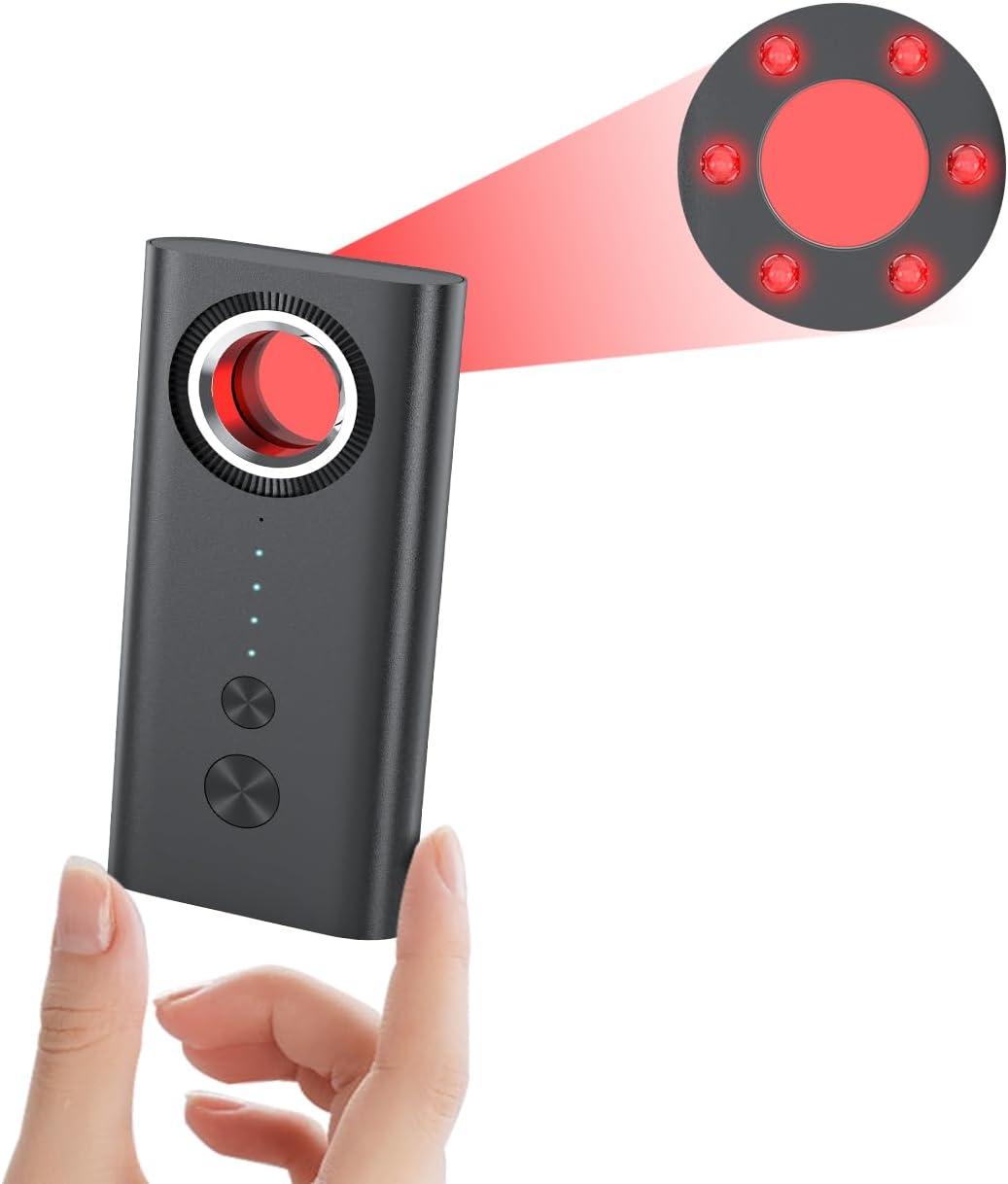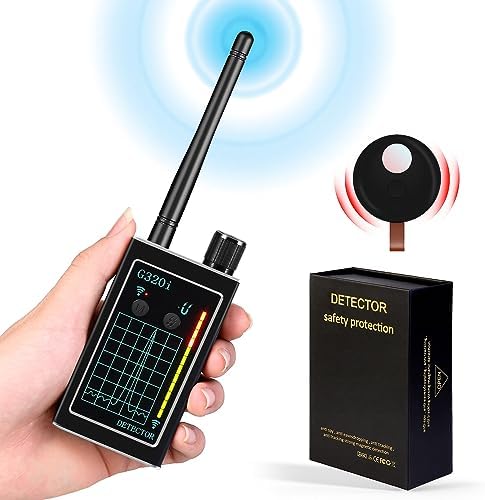Let’s be honest, the idea of tiny cameras hidden in your home, secretly recording your every move, is unsettling. This fuels the market for anti-spy detectors, devices promising to safeguard your privacy by identifying hidden microphones, cameras, and GPS trackers. But how reliable are these gadgets? Do they really offer the peace of mind they advertise, or are they more fiction than fact? This deep dive explores the world of anti-spy detectors, examining their capabilities, limitations, and the truth behind their marketing claims.
Understanding Anti-Spy Detector Technology

Anti-spy detectors employ a variety of technologies to detect surveillance devices. Common methods include:
- RF Detection: This is arguably the most common method. These devices detect radio frequency (RF) signals emitted by wireless cameras and listening devices. Think of it like a radio scanner, but instead of picking up radio stations, it looks for signals from potential surveillance equipment. Sensitivity varies greatly between models.
- Infrared (IR) Detection: IR detectors locate infrared light emitted by many cameras, especially those operating in night vision mode. These devices often use a small lens and sensor to detect subtle variations in infrared radiation.
- Laser Detection: Some high-end devices use laser technology to pinpoint the location of hidden cameras with greater accuracy than RF or IR detection alone. This method often requires more technical expertise to operate effectively.
- Magnetic Field Detection: These detectors search for anomalies in the Earth’s magnetic field that might indicate the presence of a hidden metal object like a GPS tracker.
It’s important to note that not all anti-spy detectors utilize all these methods. The specific technologies included vary significantly depending on the price and intended use of the device.
The Limitations of Anti-Spy Detectors

While these technologies offer a degree of detection capability, it’s crucial to understand their inherent limitations. Here are some key factors to consider:
- False Positives: Many devices are prone to false positives. Everyday electronic devices like smartphones, wireless routers, and even some appliances can emit RF signals that trigger an alarm. This can lead to unnecessary anxiety and frustration.
- Detection Range and Sensitivity: The range at which a detector can identify a device varies enormously. A device effective at detecting a camera across a room might miss a smaller, more discreet device placed inches away.
- Sophisticated Surveillance Techniques: Modern surveillance equipment is constantly evolving. Highly sophisticated devices, especially those employing advanced methods of data transmission, can be incredibly difficult or impossible to detect with standard anti-spy detectors.
- Shielding and Concealment: A skilled spy can easily shield or conceal surveillance equipment, rendering it invisible to even the most advanced detector.
- Software-Based Surveillance: Anti-spy detectors are primarily designed to detect physical devices. They cannot detect software-based surveillance such as keyloggers or spyware that may be installed on your computer or smartphone.
Fact vs. Fiction: The Marketing Hype
Many anti-spy detector manufacturers employ aggressive marketing techniques that can inflate their capabilities. Claims of “foolproof” detection or guaranteed identification of any hidden device should be viewed with extreme skepticism. These devices are tools, not magic wands, and their effectiveness is dependent on a multitude of factors.
Choosing the Right Anti-Spy Detector (If You Need One)

If you still feel the need for an anti-spy detector, approach your purchase with caution and research. Look for devices with reviews from reputable sources, focusing on real-world performance rather than flashy marketing claims. Consider these factors:
- Multiple Detection Methods: Devices incorporating several detection methods (RF, IR, etc.) generally offer broader coverage.
- Adjustable Sensitivity: The ability to fine-tune the sensitivity can help minimize false positives.
- Clear Instructions and User Interface: A complicated device is of little use if you can’t operate it effectively.
- Reputation of the Manufacturer: Research the manufacturer and look for evidence of customer satisfaction and a proven track record.
Practical Advice for Protecting Your Privacy

While anti-spy detectors can play a supplementary role, remember that relying solely on these devices is not a comprehensive security strategy. Consider these proactive steps to improve your privacy:
- Regularly Inspect Your Premises: A visual inspection can often reveal obvious surveillance devices.
- Secure Your Wi-Fi Network: A strong password and encryption can prevent unauthorized access to your network.
- Use Strong Passwords and Multi-Factor Authentication: This protects your online accounts from unauthorized access.
- Keep Software Updated: Regular software updates patch security vulnerabilities.
- Be Mindful of What You Share Online: Protecting your digital footprint reduces the risk of targeted surveillance.
Anti-spy detectors can offer a degree of comfort, but they are not a guaranteed solution to all surveillance threats. Their effectiveness varies considerably, and relying on them solely can provide a false sense of security. A holistic approach to privacy protection—incorporating both technological and practical measures—is the most effective strategy to safeguard your personal information and privacy.


